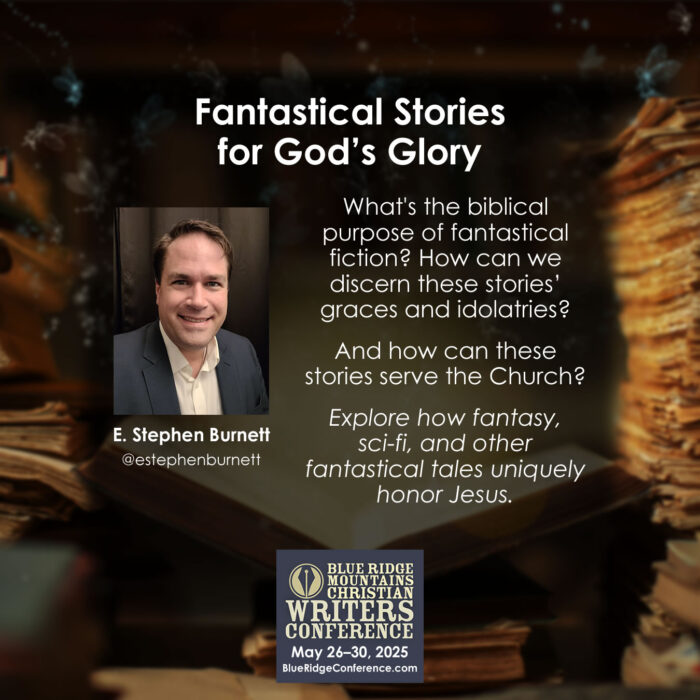The ‘Widow’s Mite’: It Might Not Mean What You Think it Means
Recently, Liberty University President Jerry Falwell Jr. said some, er, interesting things about President Donald Trump. But I shan’t even address that here. Rather, I’m intrigued by the frequent rebuttals to Falwell that rely on a particular interpretation of the “widow’s mite” biblical account.
Does this biblical account really mean what we think it means?
The lesson(?) of the widow
The “widow’s mite” account comes from a short “side story” in Luke 21: 1–4:
Jesus looked up and saw the rich putting their gifts into the offering box, and he saw a poor widow put in two small copper coins. And he said, “Truly, I tell you, this poor widow has put in more than all of them. For they all contributed out of their abundance, but she out of her poverty put in all she had to live on.”
Upon hearing this story, many Christians will react as if we’ve just heard the first notes of a familiar tune. We’ll hum along with the rest in our memory. We’ll say things like this Relevant website article said (author uncredited):
At a different point in the interview, he said that Trump’s “business acumen” was the reason he supported him. He also touted his views on the importance of “free enterprise, freedom, ingenuity, entrepreneurism and wealth,” saying, “A poor person never gave anybody charity, not of any real volume.”
Ironically, Jesus confronted this very logic in the Gospel. The Bible tells of the story of people giving charitably to the treasury.
The writer is careful only to describe the account and let readers “fill in” the moral.
Presumably, this moral is something like: Jesus views a heartfelt “small” gift as more meaningful than a less-heartfelt “large” gift. Which would (again, presumably) contradicts Falwell Jr.’s statement.1
Made-up moralizing
But re-read the four verses. Notice what’s lacking in this account.
What’s lacking is any specific statement or application by Jesus, the apostles, or the narrator of Luke’s gospel.
Jesus doesn’t make a judgment. He doesn’t praise the widow or condemn her. He only makes a statement of cold, hard fact.
Pastor John MacArthur, in this 2007 sermon, surveys the passage’s lack of saying what Christians often read into it:
Jesus never made any of those points: Jesus never said anything about what’s left behind, what percentage, what attitude, or do the same and give everything. He didn’t.
Jesus never makes any of those points.
He does not say the rich gave relatively too little; they had too much left over. He doesn’t say the rich gave too low a percent. He doesn’t say the widow gave the right amount. He doesn’t say the rich had a bad attitude and the widow had a good attitude, or good spirit. He doesn’t say that.
In fact, He doesn’t say anything about their giving except that she gave more than everybody. He doesn’t say why or with what attitude, or whether she should have, or shouldn’t have, or they should have, or shouldn’t have.
Her outward action is all that you see. It is no more or less good, bad, indifferent, humble, proud, selfish, unselfish than anybody else’s act. There is no judgment made on her act as to its true character. There is nothing said about her attitude or her spirit. She could be acting out of devotion. She could be acting out of love. She could be acting out of guilt. She could be acting out of fear. We don’t know because Jesus doesn’t say anything.2
With that in mind, it’s rather risky for Christians to proceed as if we know the moral of the “good, charitable widow gave all she had” account. At worst, we really don’t know why Jesus drew attention to this widow’s startling act.
John MacArthur: this widow was abused
But MacArthur goes on to make make convincing argument about Jesus’s purpose. He says Jesus actually meant to show that this widow was entrapped, and by an abusive governmental/religious system that exploited the poor!
This is fairly clear to see when you read the gospel sections immediately before and following Luke 21: 1–4.
Right after Jesus observes the widow, he foretells the Temple’s destruction (Luke 21, verse 5 and onward). This is hardly a natural followup to praising the charitable recipient of a heartfelt gift—to prophesy its doom!
But even more telling, just before this account, in Luke 20: 45–47, Jesus specifically warns against legalistic, authoritarian scribes. Jesus says that, among their other sins, they “devour widows’ houses” (verse 47). After such a warning, it would make no sense for Jesus to suddenly switch themes. Why would Jesus turn around to comment about this good widow who gave all she owns to support this (suddenly good?) religious cause?
Back to MacArthur’s sermon transcript from Grace to You:
How would you feel? You’re a person that loves the Lord, you’re a person that loves your brother and cares about people and cares about their needs. How would you feel if you saw a destitute widow who only had two coins left to buy her food for her next meal give those two coins to a religious system? How would you feel? You would say, “Something is wrong with that system when that system takes the last two coins out of a widow’s hand.” That’s what you would say and you would be right to say that. Giving your last two coins to a false religious system! How would you feel if you saw a destitute, impoverished person give to her religion her last hope for life to go home perhaps and die? You’d be sick. You’d feel terrible. You would be repulsed. Any religion that is built on the back of the poor is a false religion. What a sad, misguided, woeful, poor victimized lady. It’s tragic, painful. And I think that’s exactly how Jesus saw it, exactly.3
Any religion that is built on the back of the poor is a false religion.
— John MacArthur
Disclosure: I sometimes disagree with MacArthur’s teaching or tone. But here, MacArthur is rightfully and clearly concerned with false religious leaders or systems that prey on the poor. Then as now, such religious leaders insist the poor “give all they have,” only to pad the pulpits of false teachers.
The system that had developed in Judaism abused poor people. And it abused it on a spiritual…abused them on a spiritual level. Anyone who withholds money from needy parents in order to give it to God is in direct disobedience to God and is dishonoring God’s Word and substituting a man-made tradition for God’s Word. Basic human needs come first with God before religious offerings.
Listen, God’s law was never given to impoverish people, but to help them. Man was not made for the law but the law was made for man.
We would conclude that this woman was part of a system that took the last two cents out of her hand on the pretense that this was necessary to please God, to purchase her salvation and to bring her blessing. She was manipulated by a religious system that was corrupt. This is not an illustration of heartfelt, sacrificial giving that pleases the Lord, this is not a model for all of us to follow. Jesus never expects that, in fact He told a servant who had very little, you should have put your money in the bank and earned interest because you need that to meet your own physical needs.4
I think John MacArthur is right. Christians have better biblical texts to support cheerful or sacrificial giving. We need to stop praising the poor widow of Luke 21: 1–4. Instead, we must sympathize with her, and get righteously angry with her religious abusers. Her account is not an inspiration. It’s a tragedy.
- Falwell’s statement, if quoted here accurately, is easily exposed as nonsense. But my purpose here isn’t to critique him. Plenty of others are doing that. ↩
- John MacArthur, “Abusing the Poor” sermon transcript, Sept. 2, 2007, GracetoYou.org. I added a few paragraph breaks for clarity. ↩
- Ibid (emphases added). ↩
- Ibid (paragraph breaks added). ↩


















While I don’t disagree with the general view offered on the abusive system that the widow lived under, I do have to disagree with the author’s suggestion that this system is the point of Jesus’ illustration. In my opinion, he tries to make the story about “social justice” when in fact the “social injustice” of the illustration was merely a footnote to what Jesus was actually talking about. Again, going back to the preceding context, as the author did…
Luke 20:45-47 — And in the hearing of all the people he said to his disciples, “Beware of the scribes, who like to walk around in long robes, and love greetings in the marketplaces and the best seats in the synagogues and the places of honor at feasts, who devour widows’ houses and for a pretense make long prayers. They will receive the greater condemnation.”
Note that while the injustice of the religious system of the day was mentioned, it was offered only as one example of what was wrong with the system: the hypocrisy. Look at how Jesus describes the scribes as not only a group that preys on widows, but do that and other things while making a spectacle of their “devotion”. They see themselves as God’s “guys” and they want everybody to know it.
It’s in this context that Jesus points out the widows mite. That puts an entirely different spin on the illustration than the author endorsed. Far from the point being the abusive system, Jesus was drawing on the context He’d provided — the giving of the widow, a veritable nobody next to those who were giving their offerings with her. The contrast demonstrates the difference in authenticity, the GENUINE devotion of the widow versus the “show” that the rich were putting on.
Interestingly, I somehow thought that Jesus said she would be remembered forever because of the relative size of her gift… But I looked it up, and my perception was wrong! I wonder if somehow I heard a sermon or teaching somewhere that suggested it?
But then, I wonder why Jesus didn’t do something about it right then? He could have easily provided for her and her children. Of course, in the end He did and will provide justice, but she and her children may have starved to death in the meantime.